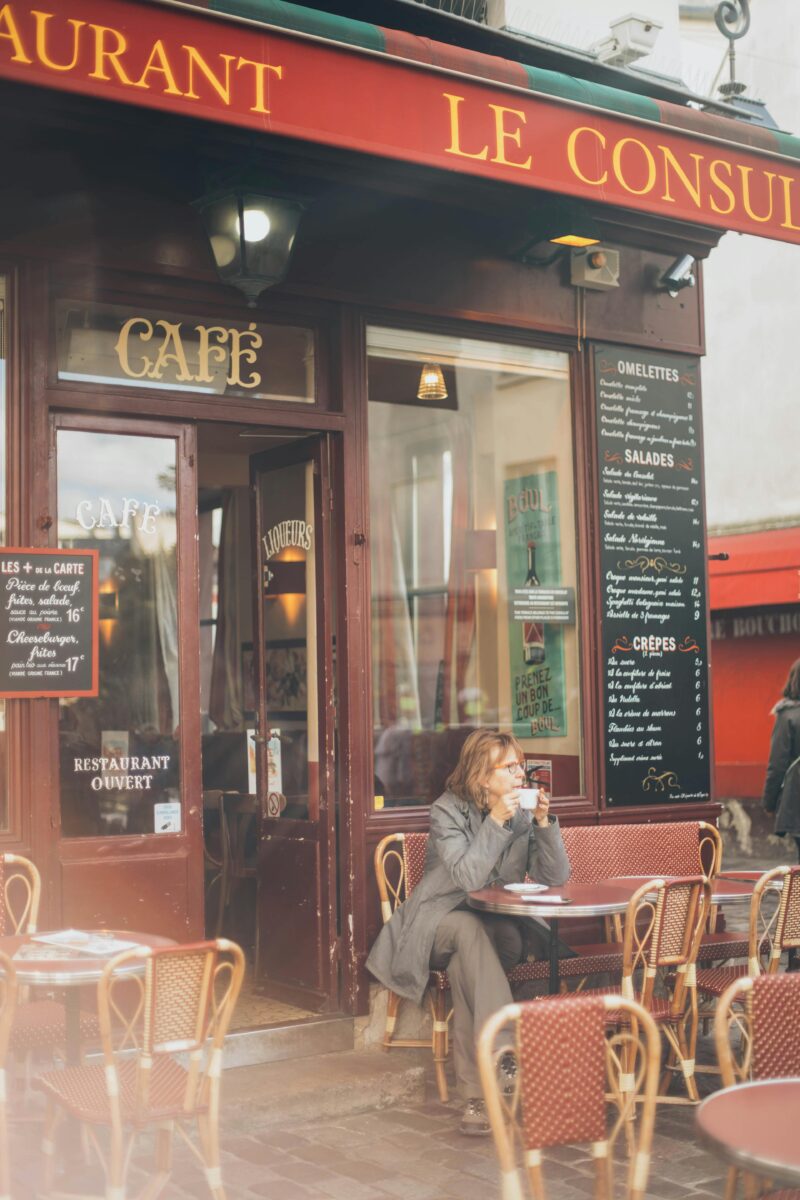5 Things to Know About Speaking French in France
You might nail the grammar and pronunciation in French, but real-life conversations come with surprises you won’t find in a textbook! Here’s what no one tells you about actually using French in France.
1. French People Will Switch to English – Even If Your French Is Great
You’ve studied for years, perfected your pronunciation, and feel confident in your French. Then, you walk into a shop, say bonjour, and they answer in English.
It’s frustrating, but it’s not always about your skills. In Paris and other tourist-heavy areas, many people automatically switch to English the moment they detect an accent.
Sometimes it’s because they assume you’d prefer it. Other times, they just want to speed up the conversation or practice their English.
If you want to keep the conversation in French, just continue speaking it. Many will switch back once they see you’re comfortable. If they insist on English, saying “je préfère parler en français” usually does the trick.
2. Regional Accents Can Be a Challenge
If you learned French in school or spent most of your time in Paris, the rest of France can feel like a different world. Accents vary wildly, and some are much harder to understand than others.
In Marseille, words are stretched out, and the rhythm is completely different. In the north, final consonants that are usually silent in standard French get pronounced.
In rural areas, some older people speak with such a strong regional accent that even Parisians struggle to understand them.
Even common words can change. In the south, a baguette is often called a flûte. In parts of Normandy, lunch is le dîner, and dinner is le souper.
If you don’t understand someone, don’t panic. Just ask them to repeat, and most will naturally adjust their speech for you.
3. Casual French Is Full of Traps
Speaking formal, textbook French will get you through most situations, but casual conversations are another story.
The French love to shorten words and mash them together. Instead of “je ne sais pas”, people say “j’sais pas2. Instead of “tu as vu ça”, you’ll hear “t’as vu ça”.
Slang is another challenge. Some words change meaning depending on context. “Grave2 can mean serious, but in casual speech, it means totally. “Un truc” can mean a thing, but it can also mean a trick, a method, or just something vague.
If you get lost in a conversation, it’s probably not your fault. It’s just the gap between formal and real-life French.
4. Talking to Strangers Feels Less Natural Than in English
In the US or UK, it’s normal to make small talk just because you’re in the same space. You sit next to someone in a café and say, “Nice place, huh?” and expect a friendly reply.
In France, this kind of casual conversation can feel unexpected or even intrusive – you might notice a surprised look. People usually need a reason to start talking.
If something specific is happening, like a train delay or a funny street performer, making a comment feels natural. But chatting for no reason can catch people off guard.
Making a joke to a stranger in an elevator will often just lead to polite silence. Complimenting someone’s outfit in a store might get you a confused look instead of a cheerful “Thanks!” Random small talk isn’t as much of a thing.
5. Some Phrases Mean Something Completely Different Than You Think
Even if you know all the words in a sentence, that doesn’t mean you know what it means. “Ça marche” literally means “It walks,” but people use it to say “That works.”
“Vas-y” doesn’t always mean “Go there,” it might means “Go ahead” or even “Hurry up” depending on the tone.
Some phrases sound friendly but can actually be passive-aggressive. “On verra” means “We’ll see,” but in many cases, it really means “Probably not.” “Je vous laisse” means “I’ll leave you to it,” but it’s often a polite way of saying, “I’m done talking to you.”
If someone says “c’est pas mal”, it literally means “It’s not bad,” but it can mean anything from “It’s decent” to “It’s actually great” depending on how it’s said.
French is full of these little traps. You can speak fluently and still miss what people are really saying.

